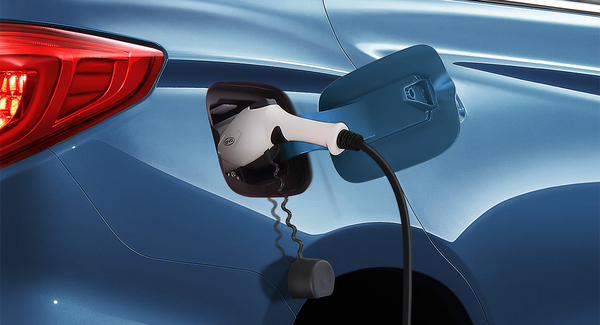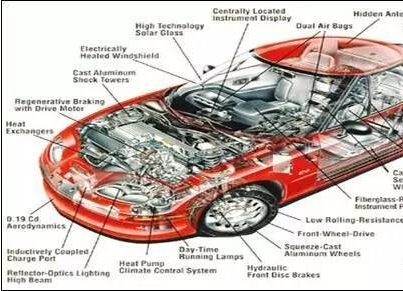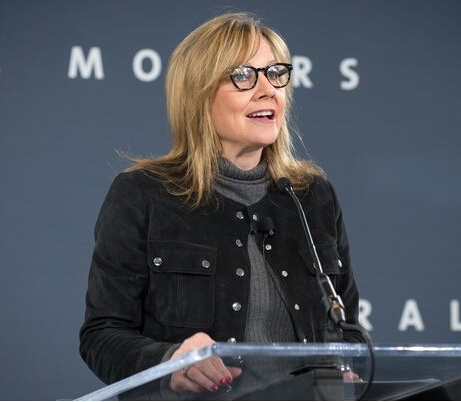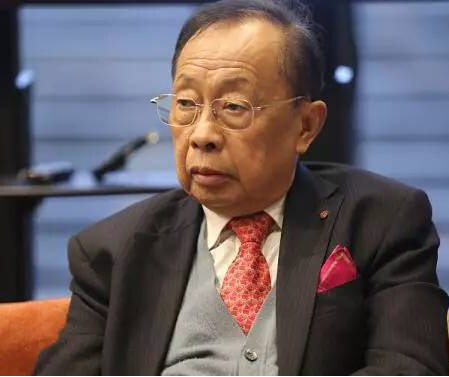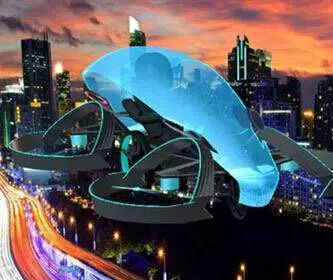The consumption of automobiles is far from being fully developed, and the trend of consumption upgrading is gradually igniting. Africa is like China 30 years ago, India 20 years ago, creating a new legend of the Nuggets for the auto giants, providing enough The imagination of the space.
"Farewell to the cold winter, go to Africa for the New Year."
This is a slogan used by some travel agencies in recent years to attract tourists to pay attention to African tourism projects. Interestingly, when the winter wind swept the entire global auto market and the core auto market generally became sluggish, many auto companies gradually found new opportunities from this slogan.
Just recently, a statement from the Office of the Prime Minister of Côte d’Ivoire mentioned that the Government of Côte d’Ivoire signed an agreement with Toyota Motor on Thursday to establish a car assembly plant in West African countries. The statement did not specify the number or type of vehicles Toyota will produce in Côte d'Ivoire, but said that the process of establishing the plant will start before the end of this year.

In the face of stagnant sales in the mature auto market, whether Toyota, or Volkswagen, BMW, Nissan and other automakers are seeking new growth opportunities. Africa is considered to be one of the last untapped new car markets in the world and was previously seen as likely to become the second Chinese market.
Encouraging Africa, opening up new battlefields, Africa's four seasons of abundant sunshine, can it cure the melancholy accumulated by car companies in the cold winter?
Is the 21st century Africa?
When it comes to Africa, some impressions will jump out stubbornly. It is three times the size of China, with the world's largest desert, the longest rift, and the longest river; it is an empty grassland, a lion and an antelope running all over the place; it is the aquatic in The Flower of the Desert. The fieryness is also the tumultuousness in The Tears of the Sun.
The character of being safe and in a timely manner has become the root cause of the backwardness of African countries. If compared with the speed of China, the time in Africa is static. But after entering the 21st century, this mysterious ancient continent has been catching up and reborn.
In 2001, The Economist called Africa a land of hopelessness. In 2011, The Economist called Africa a rising land. In 2013, The Economist called Africa a land of hope. In the decade of 2001-2011, six of the ten fastest growing economies in the world came from Africa. From 2000 to the present, Africa's GDP growth rate of around 5% has been stable for a long time, and it is a bright color in the face of the 3% global downturn.

Stephen Chan, a professor at the School of Asian and African Studies (SOAS) at the University of London, has always held the view that “the 21st century is destined to belong to Africa.” The important factor supporting this view is the forthcoming demographic dividend.
According to United Nations projections, between 2017 and 2050, half of the world's population growth is expected to be contributed by nine countries, including India, Nigeria, the Democratic Republic of the Congo, Pakistan, Ethiopia, Tanzania, the United States, Uganda and Indonesia. During this time, the population of 26 African countries is expected to double at least. The absolute increase in the population of Africa is far ahead of other continents. By 2100, Africa is expected to surpass Asia and become the most populous continent in the world.
Driven by the release of the two basic dividends of resources and population, African consumer demand is facing an explosion and consumption upgrade. In the future, Africa will be on the high-speed train of economic development.
According to a survey conducted by Ipsos in collaboration with the University of Cape Town’s Unilever Strategic Marketing Institute, there are more than 100 million middle-class people in sub-Saharan Africa with a total daily spending power of $400 million. According to the research report, African middle-class families go to the supermarket every week, 86% of the supermarkets go to more than once a month, and 55% of the hotels go to at least once a month. 85% of them have smartphones, and 73% have computers, and the speed is better than expected. Consumption is escalating, and the middle class is younger, with two-thirds of the African middle class being younger than 35 years old.

However, in terms of automobile consumption, the sales volume of automobiles in the whole of Africa in 2008 was only 1.2 million, accounting for less than 1.5% of global automobile production. And the special thing about the African market is that used cars are more popular than new cars, and second-hand car sales are at least twice as high as new car sales.
The consumption of automobiles is far from being fully developed, and the trend of consumption upgrading is gradually igniting. Africa is like China 30 years ago, India 20 years ago, creating a new legend of the Nuggets for the auto giants, providing enough The imagination of the space.
Boss battle
In fact, Japanese car companies began to penetrate the African market very early. Toyota and Nissan have been rooted in the South African market for a long time. In 1961, Toyota South African Motor Company was established and established a "PUBLICA" dealer channel. Only the local production line with small output and low scale is mainly aimed at avoiding trade friction. To date, Toyota has operated in all 54 countries in Africa. Honda opened its first car factory in Africa in July 2015 in Nigeria.
In the South African market, which accounts for 70%-80% of the total new car market in Africa, Toyota once had a maximum market share of over 20%.
However, in recent years, Toyota's business progress in the South African market has experienced some sluggishness, and the Volkswagen, which has been the last one, has taken the opportunity to become the leader of the South African market. According to the data on the MarkLines car information platform, Volkswagen ranked first in the South African market for passenger cars in the first seven months of 2019, with a market share of more than 20%, while Toyota sold 33,628 cars in the first seven months of sales. , ranked second.

Volkswagen's first factory in Africa began in 1951, and Volkswagen Polo has always been a very presence in the South African market. In 1975, Volkswagen produced the Beetle model in Lagos, Nigeria. In 1976, Volkswagen started the production line in Kenya. However, due to insufficient demand and quality problems, these factories stopped production soon.
In 2015, the Volkswagen Group reopened its car production in Nigeria after 25 years; in 2016, after 40 consecutive years of “empty window”, Volkswagen decided to re-establish car production in Kenya; in 2018, Volkswagen began in Rwanda ( Rwanda) The Kigali plant in the capital assembles the latest generation of Polo and Passat models, and Rwanda is also the fourth African market to be invested by Volkswagen after South Africa, Nigeria and Kenya.
Volkswagen Group South Africa CEO Thomas Schaefer said that Volkswagen hopes to encourage East African drivers to buy new cars instead of imported used cars. He said: "We hope to break the mindset that Africa is poor and the locals can't afford a car."

In recent years, the Volkswagen Group has been actively expanding emerging markets such as India, Africa and other international auto companies that are not yet competitive, seize market share and seize the opportunities. Although companies such as PSA, Nissan, and Honda have also opened up new businesses in Africa, at present, VW's network is wider.
Some analysts estimate that passenger car sales in Africa may reach 10 million vehicles per year by 2030.
It's hard to say how likely this forecast will be, but mainstream car companies will not give up on the African market.
In November 2018, Akio Toyoda reorganized Toyota executives. One of the larger divisions was that Toyota began transferring its entire sales in the African market to Toyota Tsusho Corporation from January 2019. This adjustment was interpreted by the industry as "Toyota's Africa is eliminated", but in fact, this is precisely to force the African market to do business, let people more familiar with the African business to lead, Africa is the strategic of Toyota Trade Key areas. At the end of 2017, Akio Toyoda has appointed Toyota Tsusho Executive Director Imai Dooshiro as the Managing Director of Toyota, who is the central figure in controlling Toyota's African business.

In addition, just before this year, Toyota and Suzuki realized cross-shareholding. According to Japanese media reports, Toyota and Suzuki will focus on the African market, and Suzuki will provide small cars produced in India to the Toyota African market.
From the global sales in the first half of this year, the Volkswagen Group still tops the list, leading the Toyota Motor Group with a advantage of 50,000. However, from the perspective of core market sales, the three major markets of China, the United States and Europe all experienced year-on-year declines.
Perhaps the current volume of the African market is not enough to have any impact on Volkswagen and Toyota's global car sales rankings, but there is no doubt that the future growth of the African market is quite predictable.
where is the road
According to the 2018 African mobile phone shipment report released by International Data Corporation (IDC), the overall shipment volume of the African mobile phone market reached 215.3 million units throughout 2018, the first of which was from China. Branded mobile phones have won nearly half of the market share, South Korea's Samsung second, Huawei's mobile phone ranked third.
Among the "Top 100 African Brands" released by "African Business" magazine, there are 7 Chinese brands on the list, among which TECNO ranks 5th and ranks among the top 10 for two consecutive years. Other Chinese brands on the list include "Itel Mobile", Huawei, Infinix Mobile, Hisense, OPPO, and Lenovo.

In fact, African natives have a mysterious love for Chinese goods. Large to air conditioners, mobile phones, small alarm clocks, watches, and the reason they are obsessed with Chinese goods, it is said that the main words are four: good quality and low price. In fact, it is not just Chinese mobile phones. Chinese auto companies have long started exploring the African market.
As early as 2003, Chery Automobile entered the African production and established a CKD plant with an annual production capacity of 15,000 vehicles in Egypt. Chery Automobile has a good performance in Africa, Africa, Morocco and other countries in Africa. Africa has also become an important overseas market for Chery.

In addition, Great Wall Motor entered the African market earlier. In 2001, Great Wall Motor entered the Libyan market. After that, Great Wall Motor was also included in the selection of official vehicles by many African countries. The total purchase amount even exceeded that of European and Japanese and Korean cars. , the most in the local auto market.
On June 17 this year, SAIC Group and Mansour Group, the largest automobile sales company in Egypt, signed a joint venture sales company and manufacturing company strategic cooperation framework ceremony. SAIC officially entered the African market. The new joint venture company will produce and sell the MG MG series products of SAIC Group's own brand to Egypt and even the Central and North Africa.

According to the financial report released by SAIC Group not long ago, the net profit of this car market in the first half of this year fell by nearly 30% year-on-year, which is the first time that SAIC Group's profit has declined in the past ten years. Perhaps the layout of emerging markets in Africa can be seen as a positive attempt by SAIC to reverse the unfavorable situation.
According to industry analysts, because the economy in Africa is relatively backward, consumers are not very demanding on technology. Once new entrants meet the demand in terms of price, they can get opportunities and thus impact the existing pattern. The economic and practical characteristics of Chinese brand cars are more consistent with the needs of the African market.
Although the current international automakers such as Volkswagen, Toyota, Nissan, Honda and Peugeot are all operating in Africa and accelerating the establishment of assembly plants, in this overseas market with relatively low barriers to entry, Chinese brands have a good chance of breaking, and it is a good one. A good opportunity to "go out".

In 2019, after the "first burden" of the car market in 28 years in 2018, the feeling of bleak was intensified. In the face of such a tough industry turning point, all the opportunities that can win growth, car companies will not let go.
The African market is seen by Deloitte as “the ultimate frontier of the global automotive industry” and its potential is evident.
Not long ago, Wei Jianjun, chairman of Great Wall Motors, claimed: "The Great Wall Motor will die in foreign countries, so how can we challenge it." Compared with the European and American markets, the long-term loss of the door, the African market is indeed worthy of training Chinese car companies. .
















 RCCN WeChat QrCode
RCCN WeChat QrCode Mobile WebSite
Mobile WebSite
